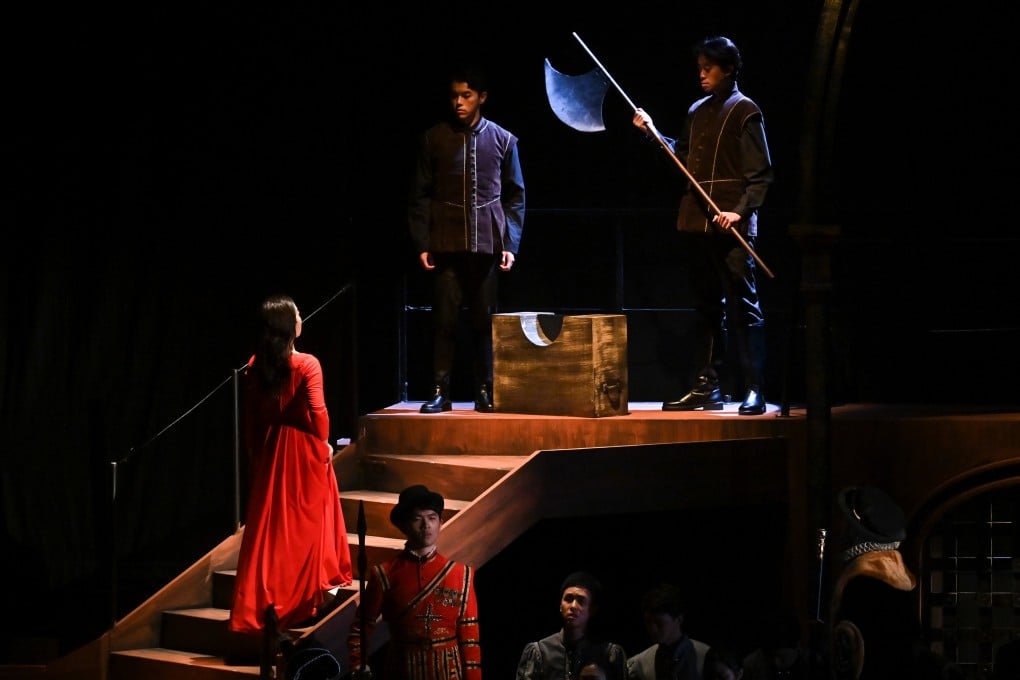Review | Opera Maria Stuarda by Musica Viva: emotionally intense matinee follows well sung but static first night
- Hong Kong group gives two contrasting performances of Donizetti’s opera that pits Mary, Queen of Scots against England’s Queen Elizabeth I
- The first night’s performance was well sung but drained of drama, whereas a matinee the next day demonstrated the work’s emotional intensity to the full

If you thought the British royal family was conflicted over the veracity of The Crown, imagine their reaction to Gaetano Donizetti. Two centuries before Netflix, the Italian opera composer wrote his “Tudor trilogy” based on the lives of three 16th-century English queens, and historical accuracy is not their strong point.
Maria Stuarda, the second of the three, performed in Hong Kong by Musica Viva over the weekend, recounts the mortal rivalry between Mary Queen of Scots and her cousin Elizabeth I. Never mind that the two never actually met, Donizetti put them together on stage for a riveting operatic encounter.
Given his prominence in the bel canto operatic repertory, Donizetti doesn’t get much stage time in Hong Kong (even less than planned, since Musica Viva’s production of The Elixir of Love fell victim to the Covid-19 pandemic last January).
Maria Stuarda was last staged in Hong Kong in 1986 – also in the Hong Kong City Hall Concert Hall and by the same producer, Lo King-man, who was additionally the director this time.
Some directors are good with crowds, mastering their “traffic cop” function in moving performers around on stage for maximum effect. Lo’s strength is rather the reverse, his staging’s dramatic impact registering in inverse proportion to the number of people onstage.
This was partly down to the chorus, which, despite being well rehearsed musically, sang with all the dramatic fire of a well-behaved church choir.